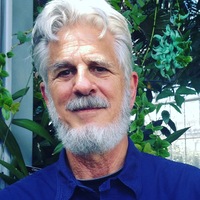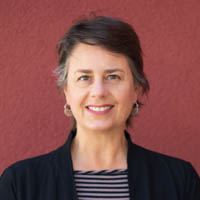In recent years, there’s been rapid growth in the field of community-engaged research, a model of knowledge production that partners universities with community organizations to co-develop research in response to local needs. In theory, this model can advance the service mission of public universities. But there’s been little follow-up research to assess the value and impacts of these projects from the perspective of the community partners they aim to serve.
A new study, conducted by UC Santa Cruz, draws on the experiences of community partners across 15 community-engaged research projects to reveal the importance of centering equity in approaches to this work. The findings show that, while community-engaged research has potential to help mitigate historical harms caused by extractive research models, there are still power imbalances affecting these projects that present ethical challenges.
To study this issue, researchers looked back on the University of California’s Center for Collaborative Research for an Equitable California (CCREC), an initiative that provided start-up funding for community-engaged research projects across the state from 2011 to 2015 and was at the forefront of the field’s progression. At the time, researchers interviewed community partners from 15 of the center’s funded projects to learn what motivated them to join these partnerships and what benefits and challenges they experienced.
The insights that community partners shared still resonate today. And their publication in the new study is an important opportunity for reflection, at a moment when the field is seeing increased funding, interest, and recognition that could help chart a course for its future.
“I hope that what today’s practitioners of community-engaged research will take away from this study is a sense of humility in building partnerships and about the knowledge they hold and that the communities hold, so that they enter this research equitably,” said Professor of Education Ronald Glass, former director of CCREC and a coauthor of the new paper.
In particular, the paper says that community organizations are often motivated to partner with universities on research in order to “know better and more systematically what they already know.” In other words, community-serving organizations already have a strong understanding—through lived experience, anecdotal evidence, and their own research—about the issues impacting their communities and what solutions could help.
University researchers, then, should understand that community-engaged research partnerships are often not creating new knowledge, so much as offering new methods or tools to deepen existing community knowledge or validate it in the eyes of funders and government agencies. Community partners explained that those in positions of power often consider community knowledge to be biased or illegitimate but are more accepting of findings from a university.
“Some of the community partners we interviewed said they were capable of doing these research projects themselves, but unless a university puts their stamp on it, it won’t be considered legitimate,” said Associate Professor of Sociology Rebecca London, a coauthor of the report. “The resulting research findings will not necessarily be different from what a community organization already knows, but funders and others don't recognize that existing knowledge.”
The paper goes on to discuss how efforts to legitimize community knowledge through a university partnership are often a double-edged sword. While such partnerships may advance a community organization’s near-term goals to have their voices heard on a specific issue, they can also reinforce power imbalances in knowledge production by positioning the university in an authorizing role, rather than building the authority of community organizations themselves.
To address this, the paper’s authors say community-engaged research projects should look for ways to tackle the research question at hand while also challenging norms about whose knowledge counts. For example, one community partner in the study noted that authorship credits on reports and papers could build the authority of a community organization by positioning them in a lead role and the university in a supporting role. These types of arrangements would likely require universities to reconsider merit review policies, in order to ensure faculty receive appropriate internal recognition for their community-engaged research.
Power imbalances between community and university partners can also show up in whose needs are prioritized during the research process, the paper notes. Production timelines for community-engaged research among projects in the study were almost exclusively driven by academic calendars, rather than the policy and organizing needs of the community. And, though collaborative research requires a significant investment of time and resources from community partners, they often did not receive a portion of the research funding.
“It’s important in any partnership to understand where the other person is coming from and get their needs met, and universities are often bad at this, partly because we are big bureaucracies, and that can make us self-centered,” London said. “But the representatives of universities in these partnerships should work to anticipate needs and mitigate potential problems through good planning in advance.”
Ultimately, the paper issues a reminder that “research is not an inherent social good.” Even well-intentioned, forward-thinking models, like community-engaged research, can reproduce injustices unless ethical issues are carefully and collaboratively considered. Critical reflection on these issues was core to CCREC’s work, and there are initiatives carrying that forward today, like UC Santa Cruz’s Campus + Community Center, where London is the inaugural faculty director.
“The findings from this paper really speak to a need for shared values and an ethical approach to community-engaged research, taking the time to build trust and relationships, and democratizing how we think about knowledge production,” London said. “The work that CCREC started on this is still incredibly important, especially as the field has become more prominent in recent years, and there are lingering questions that need to be addressed.”





